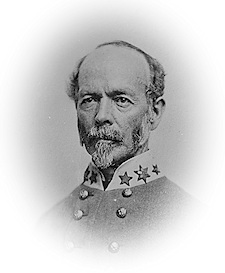November 16, 1863, The New York Herald
By the arrival of the steamers Cromwell, Columbia and Continental from New Orleans yesterday, we have highly interesting news of the expedition of General Banks. It has landed safely on the Texas shore of the Rio Grande, after experiencing some severe weather at sea, and much difficulty in putting the men ashore through the surf. The government works at Fort Brown were destroyed by the rebels, upon seeing our troops landing, and the town of Brownsville was set on fire by the enemy’s cavalry. The Union men in the town resisted them, and a bloody street fight ensued between the two factions, while the houses were burning around them. The Fifteenth Maine regiment was ordered up to Brownsville to support the Unionists. Our special correspondent on the flagship McClellan furnishes a highly interesting account in minute detail of the progress of the expedition, which will be found in another column.
Everything is quiet on the Rappahannock and Rapidan. General Meade will return to his command today. Heavy cannonading was heard yesterday morning in the vicinity of Stevensburg, commencing at eight o’clock, and continuing about an hour. It was renewed between eleven and twelve o’clock, and was heard at Bealton, twenty miles distant, as the train passed that point. It was supposed that Kilpatrick, who has his camp at Stevensburg, had engaged a reconnoitering force of the enemy.
It is definitely ascertained that General Lee has not left for Chattanooga as was recently reported, though it is believed that a portion of his troops have been sent off, leaving portions of two corps on the Rapidan. From rebel sources it is learned that the enemy has little apprehension of our assaulting his position at present. Huts are being erected, and indications are that Lee proposes to winter behind his intrenchments on the Rapidan.
A body of rebel guerillas attacked and captured a train of twenty-one wagons within ten miles of Cumberland Gap, on the 12th instant; but while they were going off with their prey, Colonel Lemert, with a few of the Fourth Ohio cavalry, dashed upon them, and after a sabre fight of a few minutes, completely dispersed the guerillas, after killing two, wounding four and capturing eleven of them. The train was of course recovered.
The United States steam transport Arago, from Charleston, brings news to the 12th inst. Nothing of an important character has occurred there for some days past. The bombardments of Fort Sumter still continues, although with less vigor than a week ago. The shells from our mortars gradually decrease the garrison from day to day by some five or six of the defenders being killed or wounded. The rebel batteries at Secessionville have been firing on our light draught steamers, and the compliment was returned by Captain Bacon with a few shells from the Commodore McDonough, which incontinently dispersed a very pleasant party of ladies and gentlemen who were enjoying themselves at a musical tea party.
The United States transport Dudley Buck, from Newbern via Fortress Monroe, arrived here yesterday afternoon. She brought from the latter place Brigadier General Fitzhugh Lee, of the rebel service, as prisoner, in charge of Captain Watson, of the Third Pennsylvania artillery.
The correspondence of the rebel agents in Europe, picked up during the capture of the blockade runners off Wilmington, N.C. — the tenor of which we have before referred to — will be found in our columns today. It comprises a very curious and interesting budget of news accidentally thrown into our hands.








